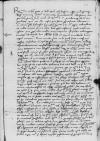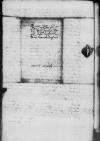Letter #4726
Tiedemann GIESE to Ioannes DANTISCUSFrauenburg (Frombork), 1537-08-22
| received [1537]-08-24 Manuscript sources:
Auxiliary sources:
Prints:
| ||||||||||||||
Text & apparatus & commentary Plain text Text & commentary Text & apparatus
Reverendissimo in Christo Patri et Domino, domino
Reverendissime in Christo Pater et Domine, domine colendissime observandissimeque. Post reverentiae debitum et servitiorum commendationem.
Miseram heri per hunc puerum litteras meas ad Reverendissimam Dominationem Vestram putabamque ad eam iam perlatas, cum ecce ille, nescio qua fatua persuasione adductus, cum obvium sibi habuisset servitorem Reverendissimae Dominationis Vestrae, cum regio cubiculario ex medio itinere ad me redit litteras ipsas referens, quod male me affecit, cum propter alia multa, tum maxime, quod excidit nobis opportunitas temporis on the margin⌈temporistemporis on the margin⌉ advocandi huc absentes dominos et ocius remittendi hunc regium nuntium. Nunc in metu sum, ne hi, quibus sunt invisae res nostrae et student rem coeptam ac feliciter currentem irritam facere undique comperendinationis causas sunt captaturis, quo electionis facultas extra tempus a iure concessum extrahatur atque ita concidant omnia nostra, quod facile eveniet, si adhuc sunt vocandi absentes nec ante respondendum regi, quam illi adveniant. Cras ad seram horam convocavit
Tum etiam, si brevem hic habuerit festinationem expeditionem cubicularius, tum cum arbitrer illum recta profecturum
Ego omnem movebo lapidem, ut vocentur alii domini, et ut sine mora absolvatur nuntius, quem si ad se revertentem praestolari vult Reverendissima Dominatio Vestra, antequam scribat reverendissimo  AAWO, AB, D. 2, f. 54v electionis in posteros dies tres vel quattuor ... illegible⌈...... illegible⌉terim quo mittendi hidden by binding⌈[i]i hidden by binding⌉ nuntii tempus habeatur laxius et evitetur periculum etc.
AAWO, AB, D. 2, f. 54v electionis in posteros dies tres vel quattuor ... illegible⌈...... illegible⌉terim quo mittendi hidden by binding⌈[i]i hidden by binding⌉ nuntii tempus habeatur laxius et evitetur periculum etc.
Praeterea autem, quae heri scripsi, hoc succurrit meo iudicio necessario suggerendum reverendissimo
Cur hoc vel similia scribi velim, Reverendissima Dominatio Vestra intelligit. Non est autem tutum, ut
Cum haec ad seram noctem scriberem, misit ad me on the margin⌈meme on the margin⌉ dominus
Ego caput meum devoveo Reverendissimae Dominationi Vestrae, si quid eorum, quae consulo, fraudi ei erit. Ego secure iam Reverendissimam Dominationem Vestram saluto episcopum meum nec alium salutabo hoc nomine. Errat tota via Reverendissima Dominatio Vestra, existimans se vigore prioris illius consensus consecuturam translationem ad hanc ecclesiam. Quod si esset, frustra nunc sectaremur has ambages, cum posset Reverendissima Dominatio Vestra absque alia requisitione capituli ad regiam commendationem consequi a summo pontifice, quod nunc quaeritur, quod tentandum certe esset, si quis persuadet.
Ego vero id quodni consulerem, cum in meam quoque rem nihil praesent[...] hidden by binding⌈[...][...] hidden by binding⌉ sit  AAWO, AB, D. 2, f. 55r
episcoporum promotio causa est consistorialis, quae non deciditur, nisi re iudicio instructa et decreto tituli canonici, quem non potest Reverendissima Dominatio Vestra habere ex priori illa successionis destinatione, quae nonnisi a coadiutoria haerebat, ea irrita, irrita habentur omnia accessoria. Postulatione igitur opus est, quam si peterentur pactorum assertores absque nominationibus fieri, esset hoc quoque non solum nihil iuri communi adversum, sed etiam meis rebus conducibile et maxime compendio futurum, quo minus dubitet reverendissima Dominatio Vestra me non discessurum fuisse on the margin⌈fuissefuisse on the margin⌉ a consilio meo, si per aliorum suffragia liceat. Sed tamen non discedo, ut heri scripsi, et si discedo, non alterius periculo discedo, quam meo, cuius causae haec mora plurimum potest afficere, et iam nescio, quid mihi ominatur huius cubicularii diverticulum apud
AAWO, AB, D. 2, f. 55r
episcoporum promotio causa est consistorialis, quae non deciditur, nisi re iudicio instructa et decreto tituli canonici, quem non potest Reverendissima Dominatio Vestra habere ex priori illa successionis destinatione, quae nonnisi a coadiutoria haerebat, ea irrita, irrita habentur omnia accessoria. Postulatione igitur opus est, quam si peterentur pactorum assertores absque nominationibus fieri, esset hoc quoque non solum nihil iuri communi adversum, sed etiam meis rebus conducibile et maxime compendio futurum, quo minus dubitet reverendissima Dominatio Vestra me non discessurum fuisse on the margin⌈fuissefuisse on the margin⌉ a consilio meo, si per aliorum suffragia liceat. Sed tamen non discedo, ut heri scripsi, et si discedo, non alterius periculo discedo, quam meo, cuius causae haec mora plurimum potest afficere, et iam nescio, quid mihi ominatur huius cubicularii diverticulum apud
De regia indignatione, si non obsecundemus, nescio quid metuat scit Reverendissima Dominatione Vestra, quae scit superinscribed in place of crossed-out scit⌈scitscitscit superinscribed in place of crossed-out scit⌉, qua ratione res sit instructa, et ipsa
Commendo me eidem Reverendissimae Dominationi Vestrae, quam Dominus servet salvam et integram.
Litteras illas, quas retulit hic puer, non resignatas secundum mitto.
Ex
Eiusdem Reverendissimae Dominationis Vestrae obsequentissimus
Postscript:
Si Reverendissima Dominatio Vestra putaverit opus non esse missione ad reverendissimum



